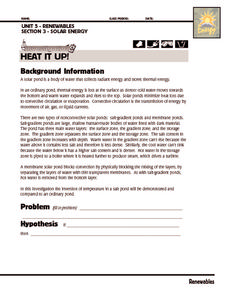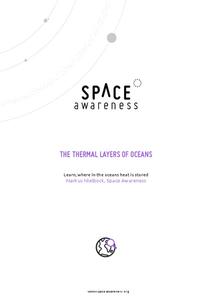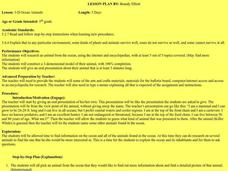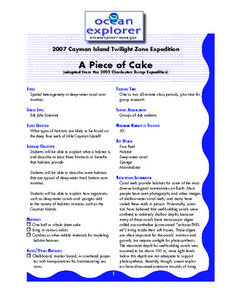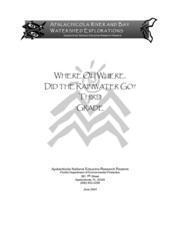Curated OER
The No Zone of Ozone
Students explore the causes and effects of the Earth's ozone holes through discussion and an interactive simulation. Using gumdrops and toothpicks, they conduct a large-group, interactive ozone depletion model.
Curated OER
Landscaping for Wildlife
Students identify the essential elements needed for promoting wildlife habitat. They describe the terms used in habitat design and the shelter for wildlife. Students explore how to create a pond to support wildlife and how to create a...
Curated OER
Earth Moon Scaling
A wonderful lesson incorporating math and physics skills along with specific details about the planetary bodies. The cross-curricular approach makes for a valid activity to challenge multiple ages and abilities. Your class could work in...
Curated OER
Model of a Well
Students complete an experiment using wire screening, wires, water, sand, and food coloring to compare the relationship of groundwater to wells. In this water lesson plan, students observe and record what they see after they complete the...
101 Questions
Stopping Distances
In 2016, one in every four fatal car crashes listed speeding as a contributing factor. Pupils view videos of a car trying to come to a quick stop from four different rates of speed. They use context clues to measure and determine the...
Baylor College
People and Climate
Model how the sun's energy strikes the planet and help your class relate it to a climate map. Assign small groups an individual climate zone to discuss. They reflect on and research how humans survive in the assigned climate and write a...
Texas State Energy Conservation Office
Investigation: Heat it Up!
This demonstration of solar ponds can be used in an earth, environmental, or physical science setting. Lab groups set up a solar pond and model how it is able, due to a salt concentration gradient, to maintain heat for future use.
Curated OER
Gelatin Volcanoes
Students investigate magma flow using gelatin volcano models. In this earth science lesson, students sketch the magma bodies as observed from the top of their model. They explain why magma moves that way.
Curated OER
The Unseen Ocean Floor
Students build ocean floor structures, then map and model an unfamiliar ocean floor. They are introduced to bathymetry and sea floor features, and discover one of the most widely usd methods for studying the ocean.
Colorado State University
What Is a "Convection Cell"?
Round and round in circles it goes! A hands-on activity has learners recreate a model of a convection cell. They watch as the difference in density of their materials creates a current.
Curated OER
Using the New Zealand plate boundary models
Students examine the differences in the effects of the tectonic plates of New Zealand. In this tectonic plate lesson, students define and explain the process of subduction. Students recognize the difference in the movement of...
Curated OER
In The Zone
Third graders identify ways that ocean animals grow, survive, reproduce, and adapt. They use computer Internet skills to acces and collect information. They create a PowerPoint presentation. They demonstrate writing skills throughthe...
Space Awareness
The Thermal Layers of Oceans
How much does the sun heat up a lake or ocean? Scholars use a cup and a strong lamp to investigate the heat transfer and thermal layers in the ocean to come up with the answer. They collect data and graph it in order to better understand...
National Nanotechnology Infrastructure Network
Creating and Testing Silver-Nanoparticle Socks
Antibacterial socks are a product of nanotechnology. An inquiry-based lesson asks collaborative groups to create their own antibacterial socks and then test them against other products on the market. The sock with the least amount...
Curated OER
What's The Level?
Students examine the movement of the water table and saturation zones. They describe the movements of the water table and locate the saturation zones. Students identify the function of each saturation zone. They develop a model of the...
Curated OER
3-D Ocean Animals
Fifth graders research an animal from the ocean, using the internet and encyclopedias, with at least 5 out of 5 topics covered. They also construct a 3-dimensional model of their animal and give an oral presentation about their animal...
Curated OER
Groundwater Lab
In this groundwater learning exercise, students simulate a pumping well and a pumping well near an injection well using plastic bottles and dirt. They use food coloring to act as a contaminate to see the movement of food color into the...
Curated OER
A Piece of Cake: Ocean Communities
Students explain habitats. In this model based lesson students create a model to help describe a habitat that is typical of deep-water. Students will describe how organisms such as coral and sponges add to their habitat.
Curated OER
Salt Marsh in a Pan
Students create a model of a salt marsh to discover the impact of pollution and human activities on water-based habitats including bays and the ocean. They recognize the relationship between natural and developed areas. Students impact...
Curated OER
What is an Aquifer?
Students examine how an aquifer operates. They discuss the implications of the groundwater becoming contaminated. They work together to create an aquifer model to observe the connection between surface water and groundwater.
Curated OER
Using Vegetation, Precipitation, and Surface Temperature to Study Climate Zones
Students begin their examination of the climate zones found around the world. Using a software program, they identify the relationship between the vegetation, climate and temperatures of the different zones. They also plot coordinates...
Curated OER
Earthquake Proof Structures
Eighth graders build a structure that is able to withstand a simulated earthquake. They research earthquakes, earthquake measurement, and society's preparation for and reaction to them. Pupils build models and present them to the...
Curated OER
Where Oh Where Did the Rainwater Go?
Third graders conduct an experiment to determine how water moves through different soils found in the Apalachicola River watershed. They read a scenario, conduct the experiment, answer follow-up questions, and draw the water movement...
Curated OER
Earth's Layers Foldable Questions Sheet
In this earth's layers learning exercise, students answer questions about the main layers of the earth using the model they built in the activity. They write details about each layer and answer questions.






